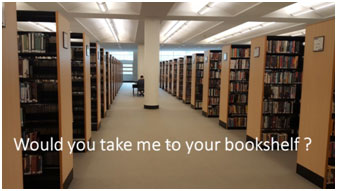Why is constructive disagreement so much harder with family?
- Family disagreements are riskier because they have more to lose. Ihave a history with my family,with “comfortable” patterns, that I may notwant to jeopardize by stirring the pot.
- The history often then becomes repeating, over and over and over. Regardless of if the pattern is functional or dysfunctional. Thus, patterns are hard to break.So,I can feel stuck, as we play the same recorded pattern, without resolution or learning: “You always say that” or “when are you going to grow up?” or “you never listen to me!”
- A hurtful pattern can create a “hot button.” As can just one traumatic event create a hot button. We all have these hot buttons, and they are prone to be triggered, and emotional, during disagreements. An emotional reaction can lead to someone else’s emotional reaction, which can lead to a blow-up. Hot buttons and their emotionsare clues that ask us to dig deeper… but require a skill* to harvest. The skill is not openly taught in our American culture. So, without the new skill, I’m prone to protect myself by putting up a “wall.” The wall, can become an unspoken “elephant in the room.”
*Good news: Attending DaaFD™ can be a path for a new skill to enter a relationship. (Even though you would not be sitting together: at DaaFD™ events, participants are instructed to sit with people they know the least.)
- Another way to think of these familiar relationship patterns is how we might assume familiar family roles (the pot-stirrer; the comic relief; the peace maker; the know-it-all; the tearful; …). Especially during times of stress. When I am “forced” into a role, it will naturally feel like there is less room for creativity, like I am stuck in a box. And so, in family encounters, we can be trapped by our history
Good news: In public events of DaaFD™, our history is not known. We arrive as a whole person, with no box. When we bring our whole self, we still bring our history, but we now bring the wisdom connected to that history. How cool is that, that we each bring wisdom! See this link for don’t-put-me-in-a-box. Or internet search “Denmark don’t put me in a box.”
- As a family, it’s not normal to admit that we are learning together as we disagree. But that is exactly what we do at public DaaFD™ events – we acknowledge that our disagreement skills are weak.We agree to be “in this together,” and agree to be awkward as we learn, as we explore together – like being on a road trip together.
- If your family relationship has crossing the line to contempt (the feeling that a person or a thing is beneath consideration, worthless, or deserving scorn) then it may be time for professional guidance to restore the relationship.
Techniques for disagreements with family…
- Don’t take the bait. I don’t have to engage with every topic or question brought to me. Imagine that a family member likes to “argue politics” and raises an issue. I can deflect by responding: “I’m not up to speed on that topic. It does sound important though. How about we hold that for another day?”
 This 2nd technique may first sound like a cop-out, but upon reflection we hope you see wisdom in this statement: “Let’s talk about something else – our relationship is way more important to me than this disagreeable topic. What bucket list item are you working on?”
This 2nd technique may first sound like a cop-out, but upon reflection we hope you see wisdom in this statement: “Let’s talk about something else – our relationship is way more important to me than this disagreeable topic. What bucket list item are you working on?”- Realize that a mind is more changeable when it is emptied. And a mind will never be changed if it is belittled or dismissed. So, think of your job as helping them empty their mind– help them feel heard. So, get super curious. Ask questions, to shift your relationship from arguing to collaborating. Ask questions until you understand their “bookshelf” and why their story is so compelling to them.
Acknowledging feelings opens communication wider still. For example: “I can tell you really are concerned about this …” Listen more.
“We may not agree on how to get there, but I share those feelings, too.”
“I don’t want our relationship to suffer, and I still care about this issue. Should we just set it aside, or maybe we can put our energy into imagining an ideal solution?”Thus, even if we can’t find “truth” on this topic, we can still BE TRUE to each other. - Imagine that you do want to dig deeper with this family member. Try this approach: “Great relationships have good disagreements, right? I’d like to get better at disagreeing with you. Want to try together?” I’ve learned of some paths: click for my disagreement skills
- “Hey, want to go to a Dinner and a
FightDialogue™ with me?” Practice makes progress. Having a place to practice turns out to be critical. We hope that you find the resources at Fighting-To-Understand helpful.
